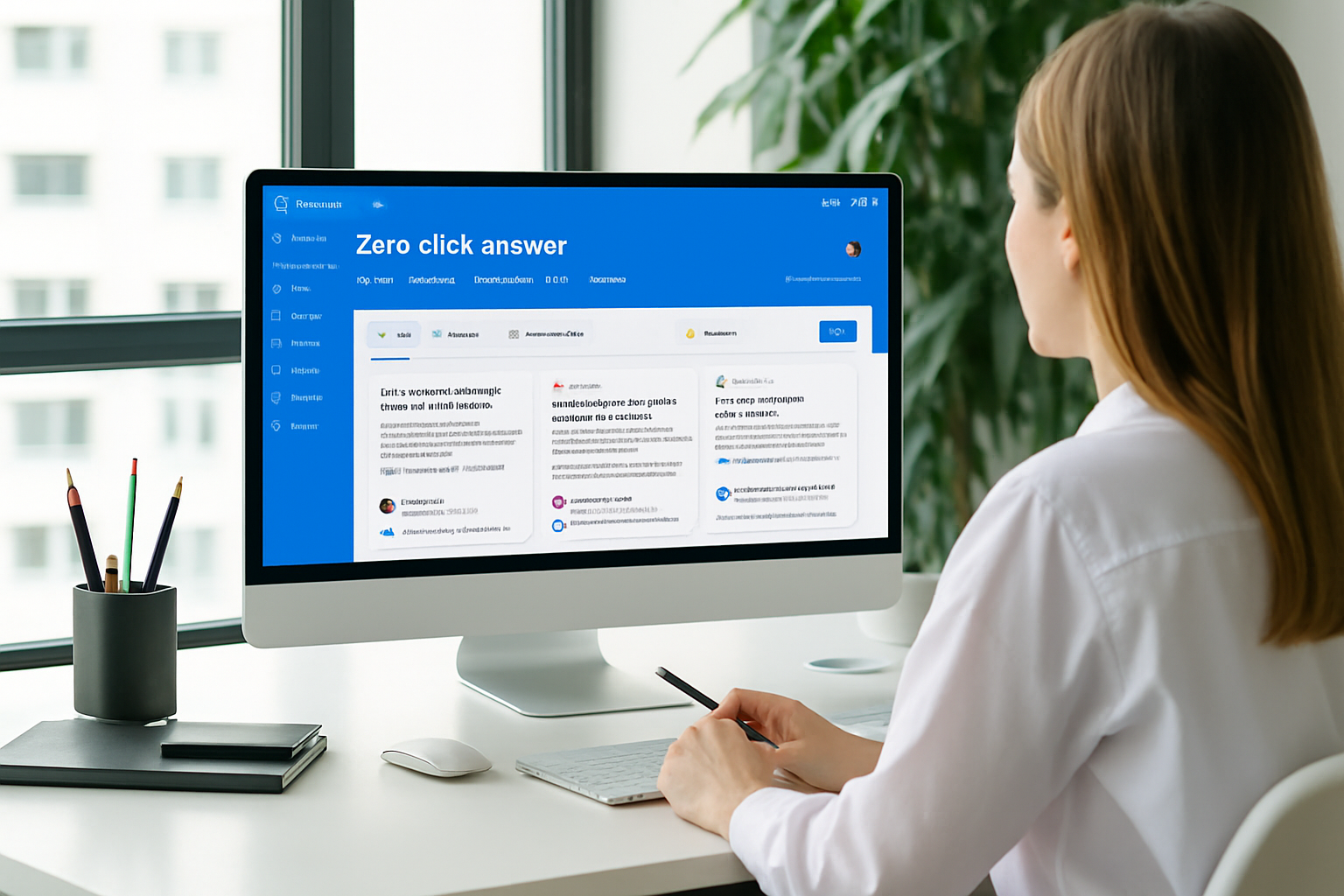The Rise of Zero-Click Searches and Its Impact on Organic Traffic in 2025
Zero-click searches happen when users get the information they need right on the search results page without clicking through to a website. In 2025, these searches make up over 65% of all queries, showing a clear shift in how people look for information online. This change challenges the traditional SEO focus on driving traffic through clicks.

Search engines now provide direct answers using featured snippets, knowledge panels, and other rich results, which means users don’t have to visit multiple sites to find what they need. As a result, just ranking on the first page isn’t enough to keep your visibility high.
What This Means for SEO and Marketing
Marketers and website owners need to optimize their content to fit the formats that search engines prefer for zero-click results. This means creating clear, concise, and well-structured answers to common questions, often using schema markup to help search engines understand the content better. It’s crucial to focus on user intent and deliver value right on the search results page.
Instead of just tracking clicks, success should be measured by how visible and engaging your content is within search features. Being featured in snippets and knowledge panels is now a big part of SEO success.
Why Are Zero-Click Searches Growing?
The growth of zero-click searches is driven by changing user expectations and smarter search engine algorithms. People want quick, reliable answers, especially on mobile devices where convenience matters most. Search engines respond by giving immediate answers, making the search experience smoother.
This trend also ties into the rise of voice search and AI assistants, which favor short, direct answers over long content.
What Kind of Content Works Best?
Content that quickly and clearly answers specific questions performs best. Lists, tables, and short paragraphs are more likely to be picked up for snippets or knowledge panels. While long-form content is still important for detailed topics, it should be paired with concise summaries or key facts that search engines can easily use.
Writing content that matches how users ask questions increases your chances of appearing in these direct-answer spots.
Rethinking How We Measure SEO Success
With fewer clicks to websites, traditional metrics like organic traffic and click-through rates don’t tell the whole story anymore. Instead, visibility in search features and brand presence on the results page are better indicators of success.
You can measure engagement by looking at how often your content appears in featured snippets or how users interact with knowledge panels. This broader view of SEO focuses on helping users right when they search.
How to Adapt Your SEO Strategy
To stay relevant, focus on creating user-centered content that provides clear answers directly in search results. Aim to get your content featured in snippets, knowledge panels, and other rich results to keep your brand visible and engaging.
Adjust your SEO goals to value impressions and interactions on the search page itself, not just clicks to your website.
As Barry Schwartz, the author of the original Search Engine Land article, notes, “The rise of zero-click searches necessitates a reevaluation of SEO strategies, focusing on optimizing for featured snippets and other formats that capture user attention directly on the search results page.”
For more details, you can read the original article here: Zero-click searches up, organic clicks down – Search Engine Land.













.png)

